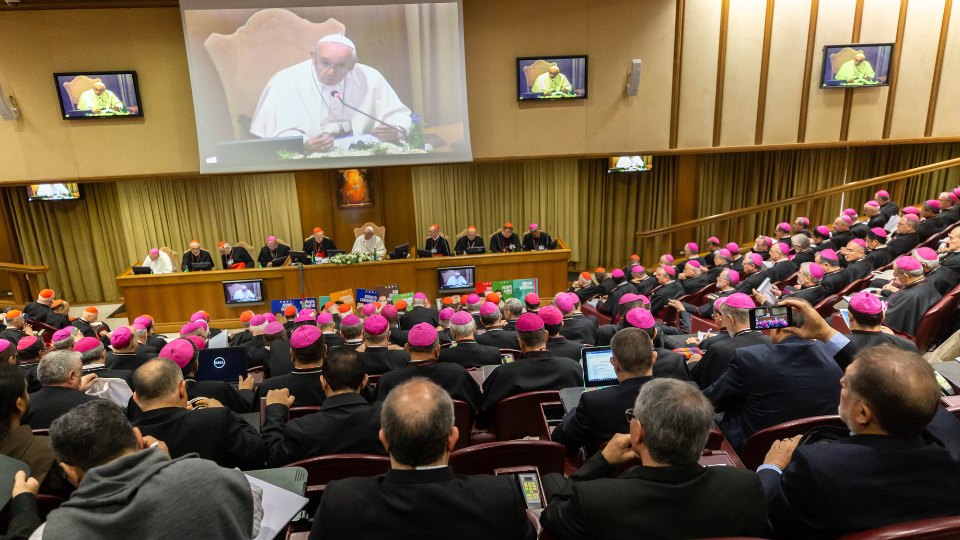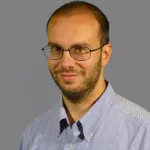
The presence of Cardinal Gerhard Ludwig Müller, former prefect of the Congregation for the Doctrine of the Faith, among the participants in the upcoming bishops' synod, is the real news. Müller, who had been without an official position since the completion of his term in 2017, is particularly significant as he is one of the members personally chosen by the Pope to participate.
The list of participants for the upcoming synodal path in 2023-2024 holds few surprises. It consists of 364 members with voting rights, including the Pope, and among them are 52 women. The 54 cardinals, including Cardinal Mario Grech, the general secretary of the Synod, and Cardinal Jean-Claude Hollerich, the general rapporteur, are included.
Although it is referred to as the "Synod on Synodality," the General Secretariat of the Synod now prefers not to use that term, despite its previous use in official documents. Instead, the focus is on a Synod centered around the life of the Church, emphasizing "communion, mission, and participation." Essentially, the aim is to engage in discussions to understand how the life of the Church will be defined and how the concept of synodality, frequently addressed by Pope Francis, will be implemented.
Instead of delving into specific details, let's provide a general overview of the composition. Alongside Cardinal Müller, the Pope has chosen to include his immediate successor, Cardinal Luis Ladaria Ferrer. Additionally, Archbishop Victor Manuel Fernandez, the new prefect of the Congregation for the Doctrine of the Faith, is a member by right. Essentially, all recent "guardians of the faith" will be present at the Synod, prompting speculation as to whether this is a strategic move by the Pope to reassure those concerned about potential doctrinal changes.
Certainly, the Pope has decided not to appoint laypeople, with the exception of theologian Inoges Sanz. However, he has adhered to the criteria of previous synods, including Jesuit Father Antonio Spadaro, director of Civiltà Cattolica; Jesuit James Martin, known for his controversial pro-LGBT positions and favored by the Pope, who has also been appointed as a member of the Dicastery for Communication; Cardinal Blaise Cupich, Archbishop of Chicago and representative of the progressive American wing; Cardinal Robert McElroy, Archbishop of San Diego and author of various essays on "radical inclusivity"; and Cardinal Wilton Gregory of Boston.
When it comes to the US episcopate, their choices for presidents and members reflect a more moderate and conservative stance. Cardinal Timothy Dolan, Archbishop Timothy Broglio, and Bishop Robert Barron, along with Bishop Kevin Rhoades of Fort Wayne-South Bend and Bishop Daniel Flores of Brownsville, will represent the US at the Synod. Cardinal Sean O'Malley, the Archbishop of Boston, and Archbishop Etienne of Seattle have also been added by Pope Francis.
It is worth noting that among the Pope's appointments, the selection of Bishop Oster of Passau stands out. Known for his strong criticism of the German synodal path, his inclusion contrasts with the number of German delegates who are considered key promoters of the synodal journey, such as Conference President Georg Baetzing, Bishop Overbek of Essen, and Bishop Meier of Augsburg.
Is the Pope seeking balance? These appointments can be seen as an attempt to demonstrate a desire for balance. In addition to the above, Archbishop Erio Castellucci of Modena, despite receiving a non placet as a potential president of the Italian Episcopal Conference, has been included among the appointments.
Castellucci, along with Father Marco Bulgarelli, joins a group of five Italian bishops: Archbishop Roberto Repole of Turin-Susa, considered part of the new wave of theologians; Bishop Franco Brambilla of Novara, known for his solid conservative thinking; Bishop Bruno Forte of Chieti-Vasto, with his experience as special secretary of the two synods on the family; Archbishop Domenico Battaglia of Naples, recognized for his positions in favor of marginalized individuals; and Archbishop Mario Delpini of Milan.
Regarding the absence of Cardinals Tobin and Zuppi from the appointments, it should be noted that they are still participating as regular members of the General Secretariat of the Synod.
There was much anticipation regarding the continental appointments. Each continental synodal assembly presented a list of 20 members, and the Pope selected ten for each assembly. The European appointments deserve further reflection. For instance, Helena Jeppsen-Spuhler from Switzerland, who is well-known for presenting the Instrumentum Laboris and advocating for the Swiss model, which includes laypeople officiating liturgies of the word, even on Sundays.
Similarly, Sister Anna Mirijam Kaschner, a German nun, represents the Northern nations. Despite her strong criticism of the German synodal path, she emphasizes the need for an authentic living of the faith rather than a change in structures.
Notably, Mariia Sabov from the Eparchy of Mukachevo has been selected for the Ukrainian delegation, while Oksana Pimenova, working at the Youth Center of the Mother of God in Moscow, will represent Russia. Archbishop Paolo Pezzi, the Archbishop of the Mother of God in Moscow, will also participate in the Synod.
In general, there appears to be a balance in the appointments. For representatives of Eastern Churches, the Patriarch is consistently chosen. In cases where Episcopal Conferences are extensive, outsiders are often selected to represent them. In smaller Episcopal Conferences, presidents or prominent figures are chosen.
Hence, the appointment of Cardinal Cristobal Lopez for Morocco should come as no surprise. His presence at the Synod will carry particular weight, especially considering the Church's impact in nations where interreligious dialogue is necessary.
From Latin America, the most prominent figure is Cardinal Barreto, the Archbishop of Huancayo and the President of the Ecclesial Conference of the Amazon. Bishop Norbert Pu of Kyai, representing Taiwan, will attend from China. Cardinal Charles Maung Bo from Myanmar stands out as the President of the Federation of Asian Bishops' Conferences, alongside Archbishop Gintaras Grusas of Vilnius, President of the CCEE. Notably, Archbishop Tarcisio Kikuchi of Tokyo, recently elected President of Caritas Internationalis, will also participate.
Now, let's turn our attention to the special guests. Luca Casarini, known for his leadership in the anti-globalization movement and currently involved in an NGO dedicated to sea rescues, is among them. Margaret Karram, the President of the Focolare Movement, represents the only included movement. Brother Alois, the Prior of the Taizé Community, is also among the special guests. Monsignor Armando Matteo, the Secretary of the Congregation for the Doctrine of the Faith, will play a crucial role as a link between the old and the new within the congregation. Theologians Severino Dianich and Hervé Legrand, who have extensively engaged with synodality, complete the list of special guests. Among the experts and facilitators, there are notable appointments: theologian Dario Vitali, an Italian Jesuit who has played a significant role in the synodal process; theologian Rafael Luciani from Venezuela, whose studies support the idea that this new synodal impulse of the Church necessarily brings about structural change; Austen Ivereigh, the author of a biography of the Pope and a participant in drafting the Document of the Continental Phase, actively supporting certain visions of the Synod that may be presented at the assembly. Additionally, there is Philippe Bordeyne, the Dean of the Pontifical Institute of Theology John Paul II; theologian Klara Cziszar, who previously took part in the Continental Synodal Assembly in Prague as a member of the Editorial Committee. The list also includes theologian Piero Coda, who was involved in drafting the document on Synodality for the International Theological Commission, and Father Hyacinthe Destivelle, an official of the Dicastery for the Promotion of Christian Unity.
Facilitators play a crucial role in conducting spiritual conversations, which appears to be the approach used to conceive the debate in a less institutional and more informal manner, especially in the structuring of the components in the Paul VI Hall where the Synod will take place.
Moving on to the official appointments, among the delegate presidents of the Synod, there are not only bishops or cardinals but also two religious figures and one layperson. In order, the delegate presidents are Coptic Patriarch of Alexandria Isaac Sedrak, Cardinal Aguiar Retes, the Archbishop of Mexico; Archbishop Luis Gerardo Cabrera Herrera of Guayaquil; Archbishop Timothy Costelloe of Perth; Bishop Flores; and Bishop Muandula of Xai-Xai. Additionally, there are Father Giuseppe Bonfrate, who has been the director of the Fede e Cultura Alberto Hurtado Center at the Pontifical Gregorian University since 2015 and has served as a consultant to the General Secretariat of the Synod; Sister Maria de los Dolores Palencia, a member of the Contents Commission of the Latin American Episcopal Council. The layperson among the delegate presidents is Momoko Nishimura, who also served as a moderator of the Continental Assembly of Asia.
There are two special secretaries: Father Giacomo Costa, a Jesuit and consultant to the General Secretariat of the Synod, who has been a driving force behind this assembly and has participated in four continental assemblies; and Father Riccardo Battocchio, the Rector of the Almo Collegio Capranica and the President of the Italian Theological Association, as well as a consultant to the Dicastery for the Clergy.
The information commission is chaired by Paolo Ruffini, the Prefect of the Dicastery for Communication, who has recently been renewed for another five-year term by Pope Francesco. The secretary of the commission will be Sheila Leocádia Pires, the Communications Officer of the South African Episcopal Conference. The members appointed by the continents, who are not bishops, will hold meetings with their respective reference organizations to discuss the methodology of the Synod. Afterward, the work of the Synod itself will commence.
This article was originally published on ACI Stampa.

Andrea Gagliarducci is an Italian journalist for Catholic News Agency and Vatican analyst for ACI Stampa. He is a contributor to the National Catholic Register.








